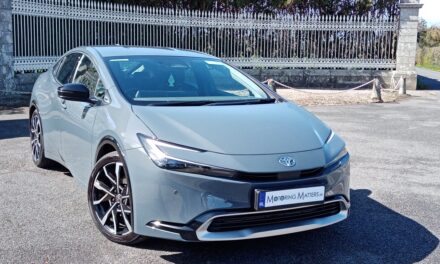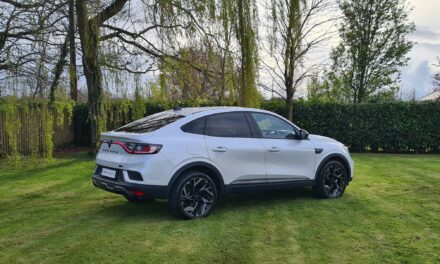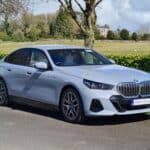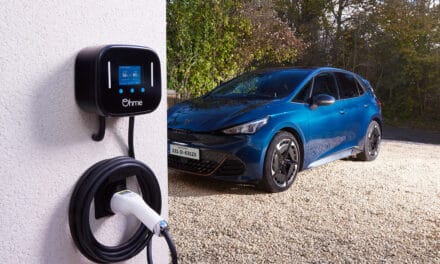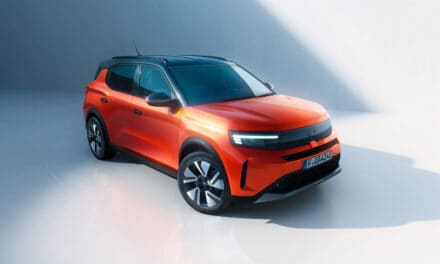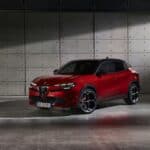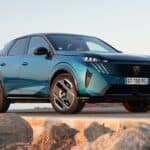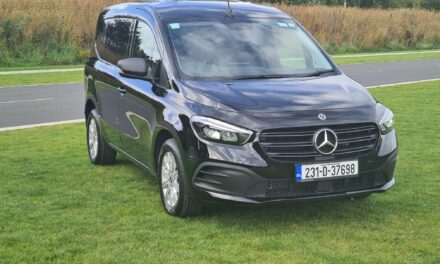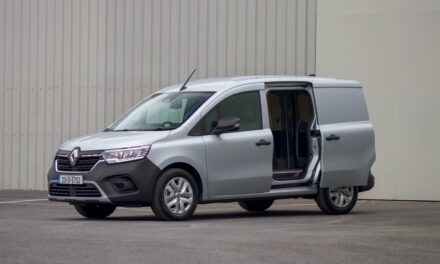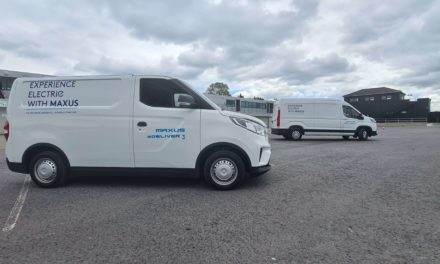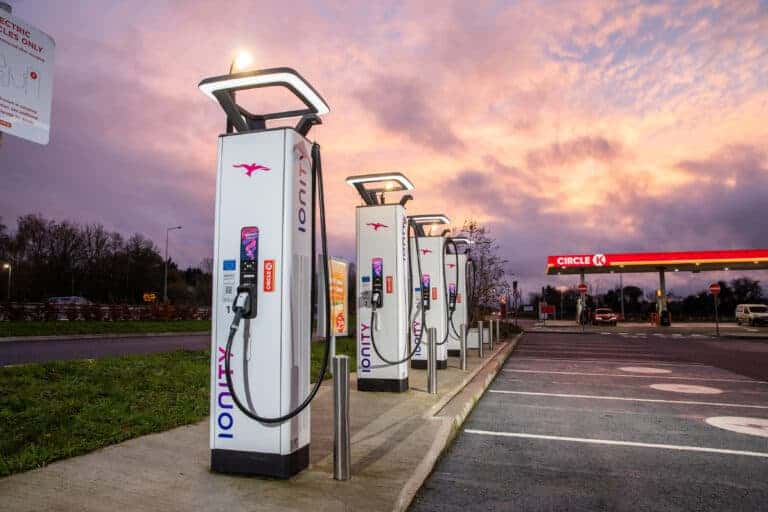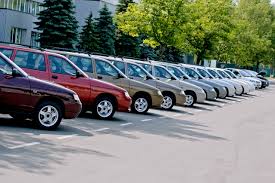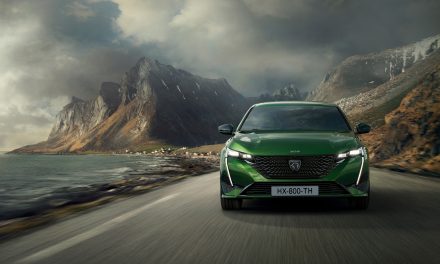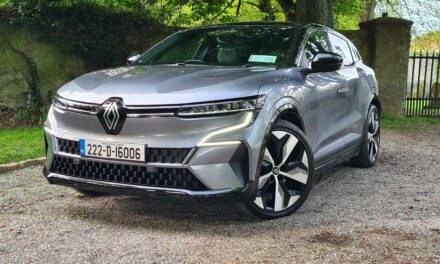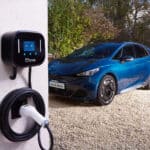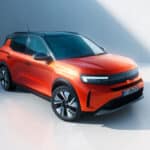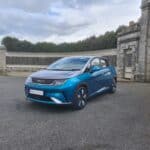
Circle K Reveals over half of Irish motorists believe they will drive an electric vehicle by 2030.
- Over half (53%) of Irish motorists say they will be driving an electric vehicle (EV) by 2030 to reduce CO2 emissions
- Two in five would consider switching to an electric vehicle within the next three years, with almost two thirds (64%) of 18-24-year-olds considering the switch
- Over two fifths (43%) will rely on forecourts for access to EV charging facilities in the future
- Three quarters (74%) feel that more needs to be done to educate people about electric vehicle adoption.
Electric vehicles are seen by most (70%) Irish motorists as playing a significant role in reducing Ireland’s level of greenhouse gas emissions. Perhaps it’s no surprise then, that EV sales continue to increase and over half (53%) of Irish motorists say they will be driving an electric vehicle by 2030. That’s according to research by Circle K, Ireland’s leading forecourt and convenience retailer.
The research also found that forecourts will continue to play a significant role in powering Ireland’s transport needs, with over two fifths of motorists saying they will rely on forecourts for access to EV charging facilities in the future. Circle K is preparing for this future and currently has EV charging points located at more than a quarter of its company owned sites nationwide, with more being added over the coming years.
Recharging.
Circle K’s expanding network of EV charging points will also help the 56% of motorists who feel the current charging infrastructure would not meet their needs if they switched to an EV. This was the primary reason given for not making the switch, followed by the expense of purchasing an electric vehicle (37%), lack of knowledge of electric vehicles (16%) and range anxiety (15%).
With over a quarter (29%) of motorists not having access to a dedicated parking spot at their home to charge an electric vehicle, 43% say they will rely on forecourts for access to charging facilities in the future. The research also revealed that only 42% of adults are aware of their nearest charging station, with just under half (47%) saying it is within 5km. Dubliners also feel they tend to live closer to a charging station with 57% saying one is less than 5km away, which falls to 42% for Munster and 36% for Connacht and Ulster.
Over half (55%) of motorists are concerned that having to charge an electric vehicle will be awkward and time consuming. When it comes to charging times, 58% of all adults think it takes less than two hours to charge an electric vehicle, with most (27%) thinking that it takes one to two hours to fully charge.
Range.
Irish motorists have differing opinions on the range of electric vehicles, with a fifth (20%) believing that the maximum distance an electric vehicle can go on a single charge is around 80-100km, 58% believe it is under 200km, a third (33%) believe it is 200-400km and fewer than one in ten (9%) think it is 400km or more.
The research found that due to range, recharging and the greater public transport options over two thirds (68%) of adults agree that electric vehicles are more suited to urban dwellers.
Action Needed.
The research has revealed that despite most motorists believing they will be driving an electric vehicle by 2030, only 30% believe that the Irish Government’s target of having one million electric vehicles on the road by 2030 is achievable, with just 17% of respondents feeling the Government is doing enough to incentivise the purchase of electric vehicles and a third (33%) are unaware of the Electric Vehicle Grant Scheme.
With 42% feeling confused by the various terminology surrounding electric vehicles, the majority of the public (74%) feel that more needs to be done to educate people about electric vehicle adoption.
Commenting on the research findings, Senior Director Fuel at Circle K Ireland, Jonathan Diver said,
“Our mission is to make our customers lives easier every day and that applies to Ireland’s transition to electric vehicle usage – We want to ensure this transition is easy for customers and provide them with access to fast and convenient EV charging solutions. In recent years, we have significantly developed our EV charging capabilities and infrastructure across our network, rolling out charging points at more than a quarter of our company owned sites, and will continue to do so in the coming years as consumers energy needs evolve.”
“EV charging solutions are improving all the time; for example, many of our EV charging facilities have the capability to fully charge vehicles in just over 15 minutes. We are very fortunate at Circle K that we have access to the very best insights globally through our colleagues across the Circle K global network. wherein Norway, our colleagues are leading our global EV strategy and EVs actually outsell traditional combustible engine cars. We see forecourts there that only retail electricity while in others EV chargers sit alongside petrol and diesel pumps. We have an understanding of what the future might look like in this regard and this will be crucial to our own EV journey here in Ireland.”
“While widespread EV usage and facilities to match is the future destination, we need to consider the journey in between. We need to transition away from fuel products but ensure we do this in a gradual and appropriate manner. It is also important to remember that everyone’s journey towards EV usage will be different. For example, someone living in an urban setting with greater access to services and transport is in a completely different situation to someone in rural Ireland who still need their traditionally fuelled cars to get from A to B. We need to ensure we have solutions for everyone during this transitionary period.”

